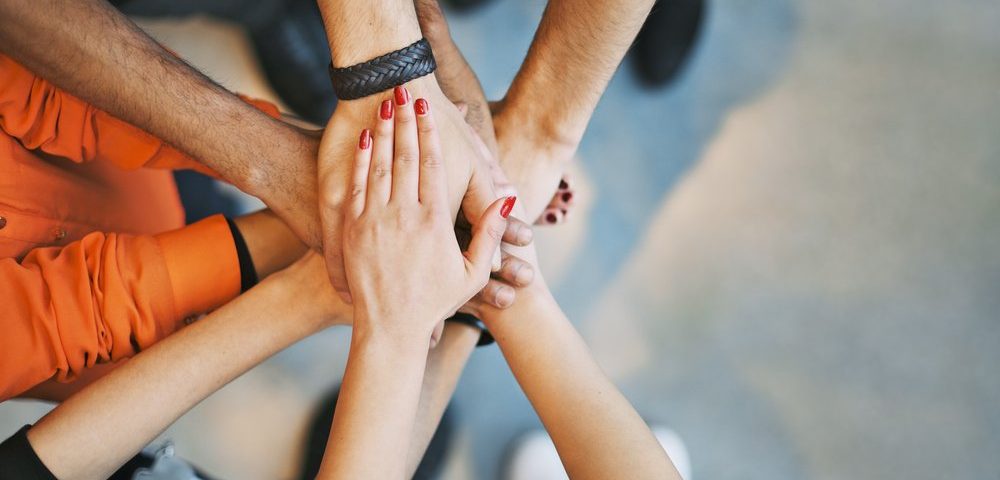My Son’s Transplant Fundraiser Helped to Build a Community
Written by |

Two positives came out of my son’s pulmonary hypertension (PH) diagnosis: It strengthened my belief in the power of prayer and rekindled my faith in people. My family has personally witnessed the kindness and generosity of both family and friends and complete strangers.
People wanted to know how they could help the little boy battling a rare and life-threatening disease that would eventually lead to a heart and double lung transplant. For two years, we politely refused cash donations and asked for prayers instead.
One day, however, a friend of a friend, Don Stevenson, introduced himself and expressed deep compassion for what my son was going through. He was relentless in asking if he could help by doing a fundraiser. It forced me to think about the cost of a heart and double lung transplant. At the time, my son was responsive to PH medications and IV therapy, but the odds were that eventually, the disease would progress, and transplant would become his only hope for survival.
I delayed answering our new friend because I wanted to do some research first. If my family was going to accept donations, I wanted people to know for certain what their generosity would be used for.
Discuss the latest research in the Pulmonary Hypertension News forums!
Two years earlier, my son’s PH specialist gave us information about the Children’s Organ Transplant Association (COTA) and suggested we start preparing for the cost of transplant. I pulled out the pamphlet and read that, “COTA provides information to your community to assure them the funds raised for transplant-related expenses are raised ethically and used appropriately.” It was important to our family that COTA administer the funds raised, and that the money would go to another child in need of a transplant if my son were unable to use it.
There were four steps to get started:
- Complete and sign a Patient Agreement.
- Complete a Family Information Form.
- Ask the transplant physician to complete the Medical Information Form.
- Recruit a Community Coordinator.
Amy O’Donnell-Riley, a school parent, bravely volunteered as our Community Coordinator and recruited others who also took on significant roles. Don Stevenson walked 1,200 miles throughout the state of Washington to raise money for our cause. For a year, people like him made headlines in our local paper about their efforts to raise $75,000 for my son’s future transplant.
There was a Buddy Holly tribute and a Breath of Aire choir concert, a scrap metal drive, a Knights of Columbus breakfast, church donations, a dance, a raffle, a silent auction, and a donation tent at a city parade. A Brownie troop donated their cookie sales, and a Little League team held a fundraiser. Children even donated their birthdays by asking for support for COTA instead of gifts. Thanks to these events, our one-year deadline was met, and COTA added $15,000 in matching funds for a total of nearly $100,000.
Four years later, my son received a heart and double lung transplant. Thanks to our community, we had no financial distractions during his recovery. He is now five years post-transplant, and the remaining funds continue to help by covering post-transplant expenses.
Amy offers the following advice to future COTA families and coordinators:
- Print the child’s picture and instructions on how to donate on a page of card stock and have them available at your events.
- Use the resources available through COTA.
- Keep a spreadsheet of people who donated and make address labels for gratitude cards.
- Help empower people to do their own “mini-fundraiser” by using their ideas.
- If you turn down a fundraiser for logistical reasons or due to lack of manpower, talk to the person and redirect their enthusiasm toward something more doable that will still have a big impact.
- Try to move your fundraisers around town and seek out neighboring towns as well.
- Put a “thank you” note in the local paper when your campaign concludes.
- Do a follow-up article after transplant.
Amy said that the campaign was a blessing for my son’s classmates and their parents: “We didn’t have to think of things to say, instead we got to DO something (which was a lot easier).” Most of all, “The campaigns, whether big or small, helped build community.”
My family put off looking into COTA because our focus had always been on helping others, and the thought of asking help for ourselves made us uncomfortable. Thanks to COTA, Amy, and her army of volunteers, the transition turned out to be the most heartwarming experience we have ever had. We were enormously thankful for the cash donations but truly blessed by the love and compassion that we received. It was emotionally healing to realize that we did not have to be alone on this journey. The memories from our COTA days are one of our greatest treasures.
***
Note: Pulmonary Hypertension News is strictly a news and information website about the disease. It does not provide medical advice, diagnosis, or treatment. This content is not intended to be a substitute for professional medical advice, diagnosis, or treatment. Always seek the advice of your physician or other qualified health provider with any questions you may have regarding a medical condition. Never disregard professional medical advice or delay in seeking it because of something you have read on this website. The opinions expressed in this column are not those of Pulmonary Hypertension News or its parent company, Bionews Services, and are intended to spark discussion about issues pertaining to pulmonary hypertension.




Leave a comment
Fill in the required fields to post. Your email address will not be published.